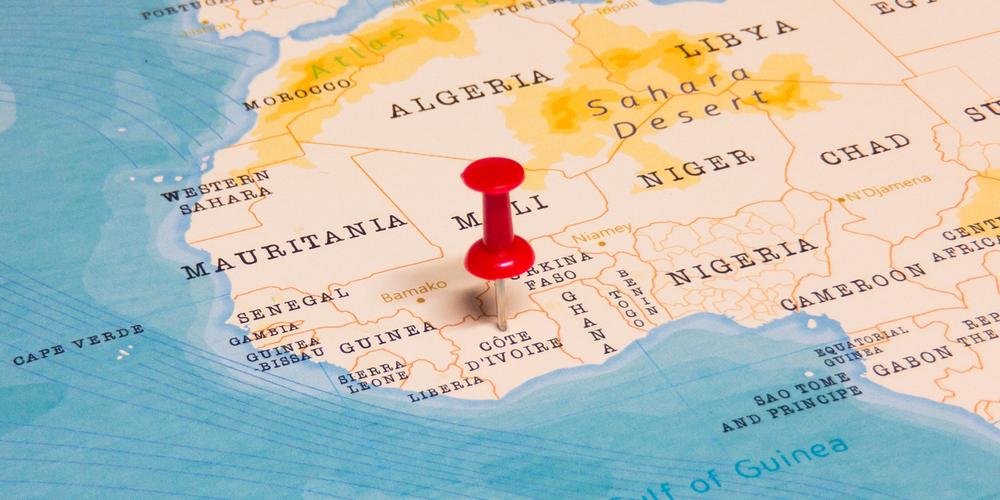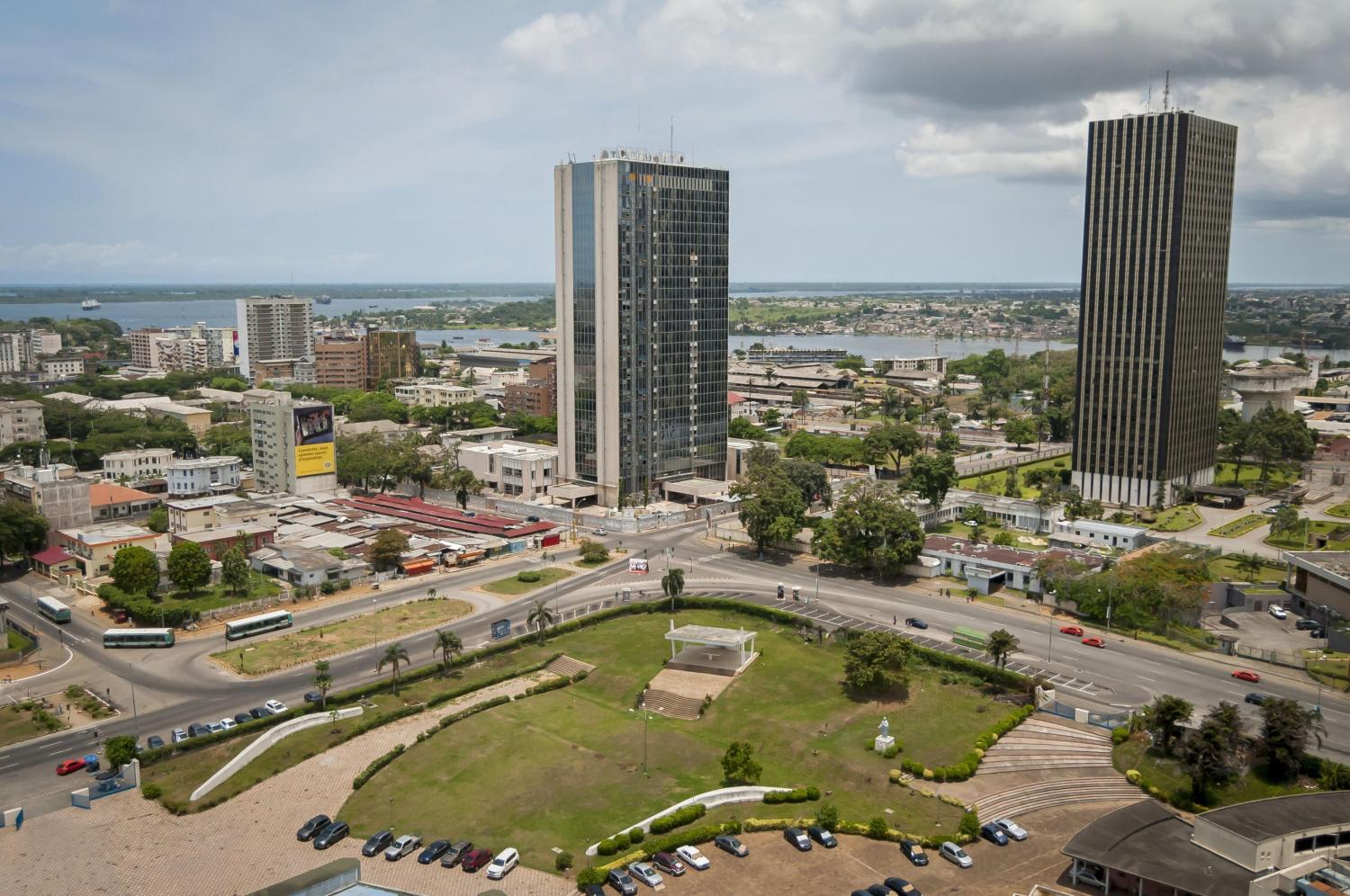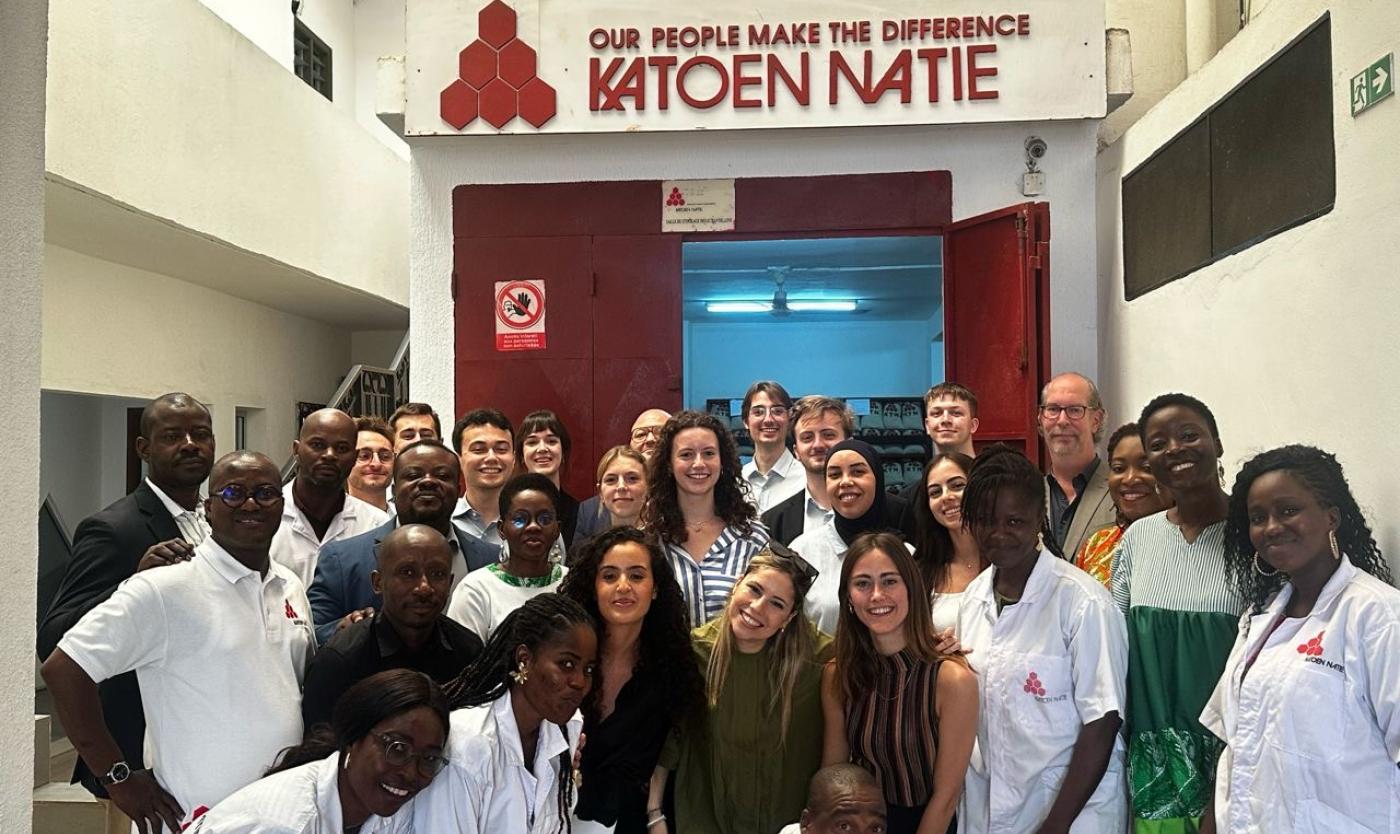
The VUB Trade Mission takes place each year, organised by students and their supervisors. In this year’s three-week mission to Côte d’Ivoire, a group of master’s students carried out a series of assignments for companies in Belgium.
Charline Van Tornhout is studying commercial engineering at VUB’s Solvay Business School. “Market research is an important part of mapping a country, its trends and evolutions,” she says. “I explored the human and animal food industry market in Côte d’Ivoire on behalf of Brenntag, a German multinational with a branch in Belgium that distributes chemical products and ingredients.”

Ivory Coast is 11 times the size of Belgium and has more than 29 million citizens.
Why did you choose Côte d’Ivoire for the mission?
Fanny Soyeur, a member of the coordinating academic team: “We look for different destinations every year in cooperation with Flanders Investment & Trade (FIT). We start with a longlist of countries, then the students analyse their economic and political situation. We usually travel in March or April, so we also have to check, for example, that there are no major holidays in that period when businesses would be closed. That’s how we arrive at a shortlist, which we discuss with FIT. There is always an FIT representative present on the mission.”
"We have students every year who are hired by the company they are doing research for."
Maarten Hermans is project leader for the Côte d’Ivoire mission: “We chose Côte d’Ivoire because the socio-political situation there is currently stable. The country is experiencing great economic growth, which makes it an opportunity for Belgian companies to establish themselves there and work with Ivorian partners.”
There are trade missions being organised by various bodies. Was it a coincidence that the Queen was also in Côte d’Ivoire during your trip?
Fanny: “Her visit obviously brought us another opportunity. We got in touch with Beluci, the Belgian-Luxembourg Chamber of Commerce in Ivory Coast, and organised an additional networking event with them in the first week. And in the second week we had a second networking event at the ambassador’s residence.”

Group photo for Katoennatie. Fanny in blue and white striped shirt in center, Charline in brown striped shirt and Maarten in back rightmost with glasses.
Are most of your appointments made in advance?
Charline: “I had looked up a lot of people I wanted to meet through LinkedIn, and I got a lot of contact addresses from FIT. But the response was quite limited: I was only able to secure one appointment. So I arrived feeling a little nervous. But when you meet people here, a lot of doors open for you.”
Maarten: “We contacted several agencies in Côte d’Ivoire beforehand that have a lot of knowledge about the economic sectors. It’s interesting for students to engage with them. In the first week we visited Katoen Natie, where they explained what it’s like to set up a business there. We also visited a laboratory where they analyse cocoa beans before they are shipped. Côte d’Ivoire is the world’s largest producer of cocoa. In the second week, we had a meeting at the local European Union delegation about European funding projects. We also had a meeting with the African Development Bank, with the Belgian development organisation Enabel and investment company BIO. The idea is that students gather as much information as possible at these meetings for their final report to the academic team and the company they are researching for. And the more sources confirm certain things, the stronger the scientific foundation of th
Charline, what did you get out of the mission?
“My assignment was pretty sales-oriented, and I enjoyed it so much that I would like to go in that direction after graduation. So it was a very good exercise. Plus it was in French, so I was able to hone my language.”
Did you forge any long-term ties?
Fanny: “There are several companies that have been on trade missions before. We also have students every year who are hired by the company they are doing research for.”
What were the highlights for you?
Charline: “For me, it was the event at Beluci. Everyone there was motivating each other to accomplish the mission. Later that week we each had to pitch our project in front of a large audience, and that was fun.”
Maarten: “Beluci, because we came into contact with many people who live and do business there. I was even presented with a pin with the flags of Côte d’Ivoire and Belgium, which was an important symbolic moment for me. In retrospect, I was also happy with the day we lost internet connection. That brought us together and it gave a new dynamic to the mission.”
Fanny: “The event at the embassy where the 17 students made their elevator pitch was a ‘wow’ moment for the academic team. You could see the students leave their comfort zone and explain to a large group in 30 seconds what they had come to do and who they were representing.”
How are the students funded?
Charline: “The participating companies pay €4,250 per student to cover the costs of organisation, travel and accommodation.”
"In Côte d’Ivoire, people are very open and friendly"
How do communication and business differ between Belgium and Côte d’Ivoire?
Charline: “In Côte d’Ivoire, people are very open and friendly, they talk a lot, including about their competitors. I often visited large companies without an appointment and you are let in everywhere without exception. While they have equally busy schedules there, that would be impossible in Belgium.”
Fanny: “Having a network is even more important here than in Belgium.”
Maarten: “What I think is lacking in Belgian culture that they have here is the warmth and camaraderie between people. In Belgium, we live in a very individualised society; you only realise that when you’re here.”
The mission is over: what’s next?
Charline: “I now have a month to draft my thesis. That means reporting on who we met and mapping out the big picture about development. Then I have to give a final presentation to the company I represented and to the academic team.”
Fanny: “With the commercial engineers, the companies are also part of the final jury. 50% of the points relate to the process the students went through, the other 50% relates to their reporting.
Also open to students of other subjects
Fanny Soyeur: “The first trade mission by Inisol, an association of master’s students in commercial engineering, was in 1991. Today, the trade mission is an academic subject at the VUB, worth 18 credits for commercial engineering students. It’s also open to other master’s students in international business, applied economics, communication and political science, photonics, bioengineering, law, sports management and Manama international and European law. For them, the trade mission is a practical module worth six credits. The idea is that we go with a pre-selected group of students, usually to a developing country, for three weeks. The students each represent a company there for which they carry out an assignment, usually a market survey that explores the potential for that company.”